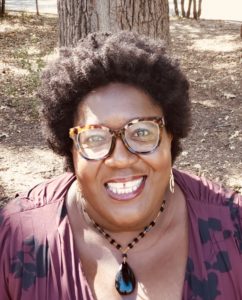• Altheria Caldera, Ph.D. • IDRA Newsletter • May 2021 •


HB 3979 restricts teachers’ ability to integrate race-related “controversial” issues and current events and would force them to whitewash U.S. history and government classes by silencing class discussion on how race and racism shaped contemporary society.
More than a dozen states have debated, have passed or are attempting to pass bills that limit learning about racism and force teachers to whitewash U.S. history instead of recognizing the vibrant cultural diversity that characterizes a pluralistic society.
Texas is not alone. More than a dozen other states have debated, have passed or are attempting to pass similar bills (see AAPF’s map for the latest list www.aapf.org/truthbetold), using language from a Trump administration executive order. The Georgia State Board of Education passed a resolution on June 3 with language identical to many provisions in Texas’ HB 3979. The resolution declared that neither the state of Georgia nor the United States are “racist,” and that the board believes no school in the state should instruct students on or accept federal or private funding to promote concepts related to systemic discrimination and racial bias.
After some late-night procedural maneuvering that many believe may be unconstitutional, Texas’ once derailed bill now sits on the Governor’s desk for passage into law.
HB 3979 limits the practice of culturally sustaining pedagogies, defined as instructional strategies that ensure the continuing presence of students’ cultural practices (Paris & Alim, 2017). Integral components of culturally sustaining pedagogies are not only extending the repertoires of students of color to include dominant (white) cultural practices but also valuing and maintaining their own cultures. Bills limiting learning about racism suggest to teachers that race, which is an important aspect of culture, should be disregarded in their teaching and in the curriculum.
HB 3979 discourages teachers from discussing current events even though such discussions are a critical part of learning and social-emotional wellness. It prohibits students from receiving course credit for civic engagement even though such activities can be the best way to learn about civics and democracy. Schools will incur significant costs due to new limits on private funding for curriculum, training or materials as well as the cost of new textbooks to address the numerous conflicts IDRA’s analysis identified with the curriculum standards set by the State Board of Education (2021).
HB 3979 and similar bills also have negative implications for ethnic studies. Ethnic studies courses, like African American Studies, Mexican American Studies, and Native American Studies, necessarily include analyses of race and racism and aim to instill cultural pride. Instead of a balanced approach to studying individual and group relationships to society, bills like HB 3979 discourage critiques of the ways the country’s founders and leaders discriminated against and inflicted violence on people of color. In this way, the bills stand in striking opposition to ethnic studies and a more holistic version of history and current events.
Supporters of this bill and similar ones in other states argue for highlighting cultural homogeneity instead of recognizing the vibrant cultural diversity that characterizes a pluralistic society. These bills harm the important work many school districts are prioritizing, such as diversity and inclusion programs and training to reduce the effects of educator implicit bias on students. They will undoubtedly negatively impact all students, but students of color will suffer the most detrimental effects.
Resources
Caldera, A. (May 12, 2021). Texas educators, not the Legislature, should decide how to teach current events, Fort Worth Star-Telegram.
Davis, A.Y. (2016). Freedom is a Constant Struggle: Ferguson, Palestine, and the Foundations of a Movement. Chicago: Haymarket Books.
IDRA. (May 30, 2021). Revived in the Senate! HB 3979, the “How-to Guide for Whitewashing History,” Likely to Become Law. IDRA eNews.
IDRA. (2021). HB 3979 Redundancies and Conflicts. IDRA.
Paris, D., & Alim, H.S. (2017). Culturally sustaining pedagogies: Teaching and learning for justice in a changing world. New York, NY: Teachers College Press.
Robledo Montecel, M., & Goodman, C.L. (Eds). (2010). Courage to Connect – A Quality Schools Action Framework. San Antonio: IDRA.
Altheria Caldera, Ph.D., is an IDRA Education Policy Fellow. Comments and questions may be directed to her via email at altheria.caldera@idra.org.
[©2021, IDRA. This article originally appeared in the May 2021 IDRA Newsletter by the Intercultural Development Research Association. Permission to reproduce this article is granted provided the article is reprinted in its entirety and proper credit is given to IDRA and the author.]


